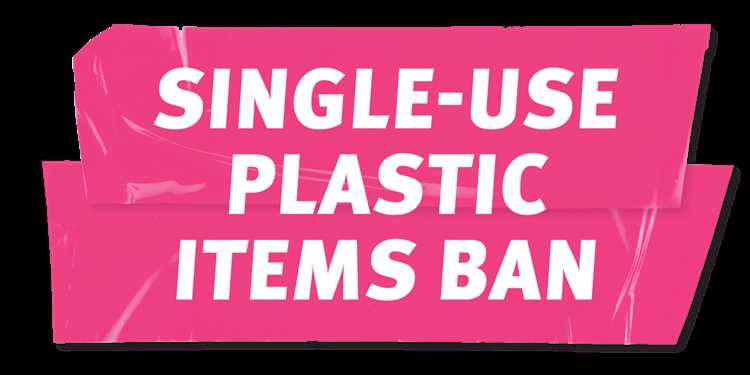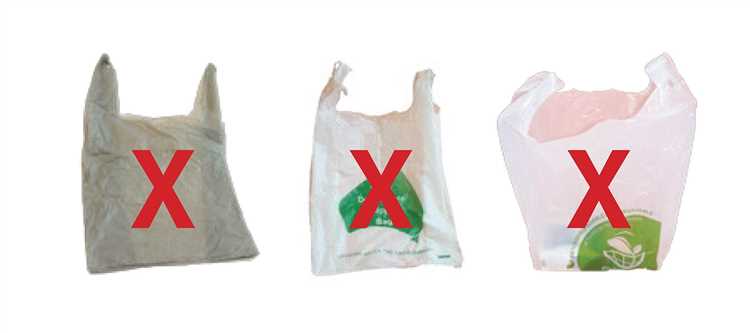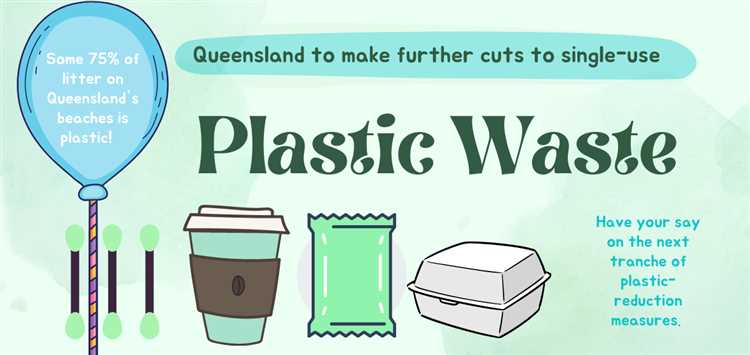
Plastic pollution has become a major environmental issue around the world. In an effort to combat this problem, the Australian state of Queensland has implemented a ban on single-use plastic bags. This new legislation aims to reduce the amount of plastic waste that ends up in our oceans and landfills.
The ban applies to all retailers, including supermarkets, grocery stores, and department stores. From now on, customers will need to bring their own reusable bags or purchase them at the store. The ban includes all types of single-use plastic bags, including lightweight bags with handles and thicker, reusable bags.
The decision to ban plastic bags in Queensland follows the lead of other states and territories in Australia, such as South Australia, Tasmania, and the Australian Capital Territory, which have already implemented similar bans. These bans have proven to be successful in reducing plastic waste and encouraging customers to switch to more sustainable alternatives.
While the ban may inconvenience some shoppers who are accustomed to the convenience of single-use plastic bags, it is a necessary step towards a more sustainable future. By reducing our reliance on plastic bags, we can help protect our environment and preserve it for future generations.
- History of Plastic Bag Ban in Queensland
- Impact on the Environment
- Alternatives to Plastic Bags
- Benefits of the Ban
- Support and Opposition
- Support from the Community
- Opposition from Retailers
- Enforcement and Penalties
- Q&A:
- Why has Queensland banned plastic bags?
- When does the plastic bag ban come into effect in Queensland?
- What types of plastic bags are included in the ban?
- Are there any exceptions to the plastic bag ban?
- What should I use instead of plastic bags now that they are banned?
- What is the Plastic Bag Ban Queensland?
- When did the Plastic Bag Ban in Queensland come into effect?
History of Plastic Bag Ban in Queensland
The plastic bag ban in Queensland was implemented on July 1, 2018. It was a response to the growing concern about the environmental impact of single-use plastic bags.
Prior to the ban, single-use plastic bags were widely used in Queensland and contributed significantly to plastic pollution. These bags often ended up in landfills, waterways, and oceans, where they posed a significant threat to marine life and ecosystems.
In order to address this issue, the Queensland Government introduced the plastic bag ban to encourage the use of reusable bags and reduce plastic waste. The ban prohibited retailers from providing lightweight plastic bags with handles to customers.
The transition to a plastic bag ban was not without its challenges. Some retailers were initially resistant to the change and faced difficulties in finding alternatives to plastic bags. However, public awareness campaigns and support from community organizations helped to promote the use of reusable bags and educate consumers about the environmental benefits of the ban.
Since the ban was implemented, there has been a noticeable reduction in the use of single-use plastic bags in Queensland. Consumers have become more accustomed to bringing their own bags when shopping, and retailers have adapted by offering alternative options such as reusable bags made from fabric or recycled materials.
The plastic bag ban in Queensland has also had positive effects on the environment. It has significantly reduced the amount of plastic waste entering landfills and waterways, leading to a cleaner and healthier ecosystem. Additionally, the ban has helped to raise awareness about the broader issue of plastic pollution and the importance of taking individual and collective action to reduce our reliance on single-use plastics.
Overall, the plastic bag ban in Queensland has been a significant step towards reducing plastic waste and protecting the environment. It serves as an example for other regions and countries to follow in their efforts to combat plastic pollution.
Impact on the Environment
The plastic bag ban in Queensland is expected to have a positive impact on the environment. Plastic bags are a major source of pollution, particularly in our oceans and waterways. These single-use bags take hundreds of years to break down, and in the meantime, they pose a significant threat to marine life.
Many marine animals mistake plastic bags for food, which they ingest and can lead to serious health issues or even death. Additionally, plastic bags can entangle marine animals such as turtles and seals, making it difficult for them to swim, hunt, or escape from predators.
Furthermore, the production of plastic bags requires large amounts of energy and resources, contributing to greenhouse gas emissions and depleting our finite resources. By banning plastic bags, we can reduce our reliance on fossil fuels and decrease our carbon footprint.
In addition to the environmental benefits, banning plastic bags encourages consumers to adopt more sustainable practices. It promotes the use of reusable bags, which are more durable and can be used for multiple shopping trips. This reduces the overall demand for plastic bags and helps to conserve resources.
Overall, the plastic bag ban in Queensland is expected to have a positive impact on the environment by reducing pollution, protecting marine life, conserving resources, and promoting sustainable practices. It is an important step towards creating a cleaner and healthier environment for future generations.
Alternatives to Plastic Bags

With the ban on plastic bags coming into effect in Queensland, it is important to find alternatives that are more sustainable and eco-friendly. Here are some options:
1. Reusable Bags: One of the easiest and most effective alternatives to plastic bags is reusable bags. These bags are made of durable materials such as canvas or jute, and can be used multiple times. They are often available for purchase at supermarkets and can be kept in your car or bag for whenever you need them.
2. Paper Bags: Another option is to use paper bags. While these bags are not as durable as plastic, they are biodegradable and can be recycled. Many retailers offer paper bags as an alternative, and they can be a good option for lighter items.
3. Biodegradable Bags: Biodegradable bags are made from materials that break down easily in the environment. These bags are often made from plant-based materials such as cornstarch and can decompose within a few months. They are a good option if you need disposable bags for specific purposes.
4. Tote Bags: Tote bags are large, reusable bags that can be used for a variety of purposes. They are often made of sturdy materials such as cotton or canvas and can be folded up and easily carried with you. Tote bags are a stylish and practical alternative to plastic bags.
5. Mesh Produce Bags: If you are looking for an alternative specifically for fruits and vegetables, mesh produce bags are a great option. These bags are lightweight, breathable, and can be reused multiple times. They allow you to easily see what is inside and can be washed when needed.
6. Bring Your Own Bags: The most sustainable option is to bring your own bags whenever you go shopping. This can include any type of bag that you already own, such as backpacks or handbags. By bringing your own bags, you can avoid using single-use bags altogether.
Remember, the key is to reduce our dependence on plastic bags and move towards more sustainable alternatives. By making small changes in our everyday lives, we can make a big difference for the environment.
Benefits of the Ban
The plastic bag ban in Queensland has a number of benefits for the environment, wildlife, and communities. Here are some of the key benefits:
- Reduces plastic pollution: By banning single-use plastic bags, the amount of plastic waste that ends up in landfills and the environment is significantly reduced. This helps to protect our oceans, rivers, and wildlife from the harmful effects of plastic pollution.
- Lessens reliance on fossil fuels: The production of plastic bags requires the use of fossil fuels, which contributes to climate change. By encouraging the use of reusable bags instead, the ban helps to limit our dependence on these nonrenewable resources.
- Encourages sustainable choices: The ban promotes a shift towards more sustainable shopping habits. It encourages people to bring their own reusable bags, which can be used multiple times and reduces the need for single-use plastics.
- Saves money: Disposable plastic bags are often given out for free by retailers, but they come at a cost. By encouraging people to bring their own bags, the ban helps to reduce the need for retailers to provide plastic bags, saving them money in the long run.
- Creates awareness: The plastic bag ban raises awareness about the issue of plastic pollution and the need to reduce our consumption of single-use plastics. It prompts conversations and encourages individuals to think about their own environmental impact.
- Supports a circular economy: By reducing plastic waste and promoting the use of reusable bags, the ban supports a circular economy where materials are reused and recycled, rather than disposed of as waste.
Overall, the plastic bag ban in Queensland has numerous benefits that contribute to a cleaner, healthier environment for future generations.
Support and Opposition
Support for the plastic bag ban in Queensland has been growing steadily among environmentalists and conservation groups. They argue that the ban is a necessary step in reducing plastic waste and protecting the environment. These groups believe that the ban will encourage consumers to switch to more sustainable alternatives, such as reusable bags, and will ultimately lead to a decrease in plastic pollution.
On the other hand, there has been some opposition to the ban, mainly from the plastic industry and businesses that rely on plastic bags for packaging and distribution. They argue that the ban will lead to job losses and increased costs for consumers. Some businesses also claim that alternative bags, such as paper or biodegradable options, are not as practical or cost-effective as plastic bags.
Support from the Community
Many members of the community have also expressed their support for the plastic bag ban. They believe that it will help to improve the cleanliness of public spaces and reduce litter. Additionally, some people see the ban as an opportunity to raise awareness about the impact of plastic pollution and to promote more sustainable habits among consumers.
Opposition from Retailers
Retailers, especially smaller businesses, have raised concerns about the ban. They argue that it will be difficult for them to find affordable alternatives to plastic bags, which may increase their operating costs. Some retailers also worry about the potential backlash from consumers who are used to the convenience of plastic bags. However, other retailers have embraced the ban and have begun offering reusable bags to their customers as a more sustainable option.
Enforcement and Penalties

The Queensland government has implemented strict measures to enforce the plastic bag ban. Both businesses and individuals are required to comply with the ban, and failure to do so can result in penalties.
Inspectors will be conducting regular checks at retail stores to ensure that plastic bags are not being provided to customers. If a business is found to be in violation of the ban, they may be issued with a warning or a fine.
The penalties for non-compliance can vary depending on the circumstances. For individuals, the maximum penalty is $6,667.50, while businesses can face fines of up to $26,670. In some cases, businesses may also be required to take corrective action, such as implementing better recycling programs or providing reusable bags to their customers.
It is important for both businesses and individuals to be aware of their obligations under the plastic bag ban and to take steps to ensure compliance. By doing so, we can all contribute to reducing the environmental impact of single-use plastic bags and protecting our natural resources.
Q&A:
Why has Queensland banned plastic bags?
Queensland has banned plastic bags in order to reduce the negative environmental impact they have. Plastic bags often end up in waterways and oceans, harming marine life and polluting the environment.
When does the plastic bag ban come into effect in Queensland?
The plastic bag ban in Queensland came into effect on July 1, 2018.
What types of plastic bags are included in the ban?
The ban applies to lightweight plastic bags with a thickness of less than 35 microns. This includes the traditional “single-use” plastic bags commonly found in supermarkets and retail stores.
Are there any exceptions to the plastic bag ban?
Yes, there are a few exceptions to the ban. Plastic bags used for packaging certain types of products, such as meat, fish, or bulk goods, are still allowed. Additionally, some retailers may still provide thicker, reusable plastic bags for a small fee.
What should I use instead of plastic bags now that they are banned?
There are several alternatives to plastic bags that you can use. Reusable bags made of cotton, canvas, or other durable materials are a popular choice. You can also opt for paper bags or bring your own containers when shopping for loose items such as fruits and vegetables.
What is the Plastic Bag Ban Queensland?
The Plastic Bag Ban Queensland is a government initiative that aims to phase out single-use plastic shopping bags in order to reduce plastic waste and improve environmental sustainability in the state of Queensland, Australia.
When did the Plastic Bag Ban in Queensland come into effect?
The Plastic Bag Ban in Queensland came into effect on July 1, 2018.